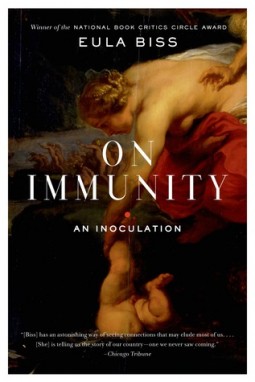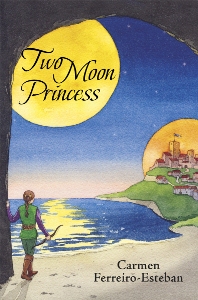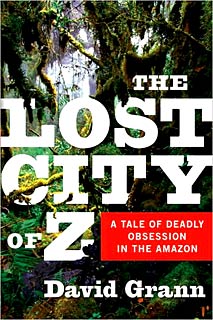This review contains affiliate links, which earn me a small commission when you click and purchase, at no extra cost to you. Thank you for supporting my small business and allowing me to continue providing you a reliable resource for clean book ratings.
If you haven’t heard about how vaccinations can cause autism, you’ve likely been hiding under a rock for a decade. But you may not know exactly why people believe this supposed scientific fact. And you may not know why it’s important, both for the public health and as a cultural touchstone.
Eula Biss examines this issue in her new book, not primarily to persuade “anti-vaxxers” to change their minds, but to show how our culture has fostered this movement. And the result is a fascinating, informative, and thought-provoking look at parenting in 21st-century America. Biss has done her research, and she shares pertinent background information on how inoculating people against common diseases has evolved, from the practice of variolation (people in the 1700s figured out that putting pus from smallpox-infected cows or people in the broken skin of other people would sicken them mildly but keep them from full-blown illness, for example) to modern-day vaccination.
Biss paints the anti-vaccination movement in context of how wealthy and/or well-educated segments of our Western culture have essentially begun to feel it’s possible to “go natural” enough to ensure health, to create “super” immune systems. She writes, “AIDS education taught us the importance of protecting our bodies from contact with other bodies, and this seems to have bred another kind of insularity, a preoccupation with the integrity of the individual immune system.” She quotes anthropologist Emily Martin: “Is the immune system at the heart of a new incarnation of social Darwinism that allows people of different ‘quality’ to be distinguished from each other?”
This, then, is the crux of the book’s examination of the current zeitgeist. It comes down to this: parents today, in their natural (and certainly not new) desire to protect their children, are risking not just their children’s more likely exposure to common and dangerous diseases in an effort to supposedly shield them from autism, but are risking the health of the whole population, including those less-privileged individuals who do not possess “super” immune systems (and she has to observe that the privileged are doing some judging as to why these less-privileged don’t have superior immune systems).
So not only is On Immunity a quick primer on the history of vaccination and the current attitudes about it, it is a thought-provoking examination of a new kind of class inequality. Regardless of one’s attitudes about vaccination, this book should spur some good discussion about attitudes in our modern society and our responsibility to each other.
Rated: None. There are a couple of uses of mild language.





Pingback: Measles outbreak a sadly necessary wake-up call | Life and Lims